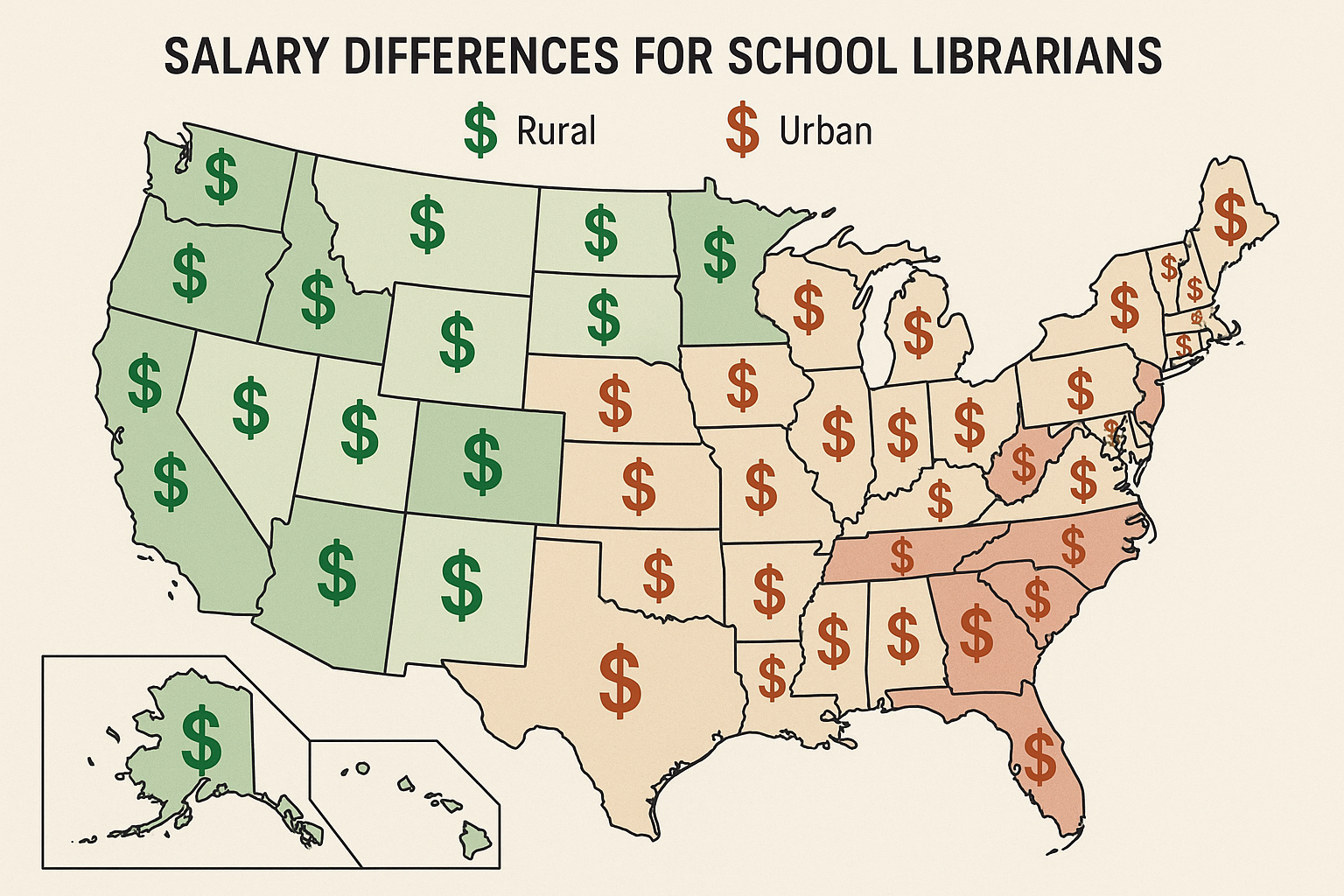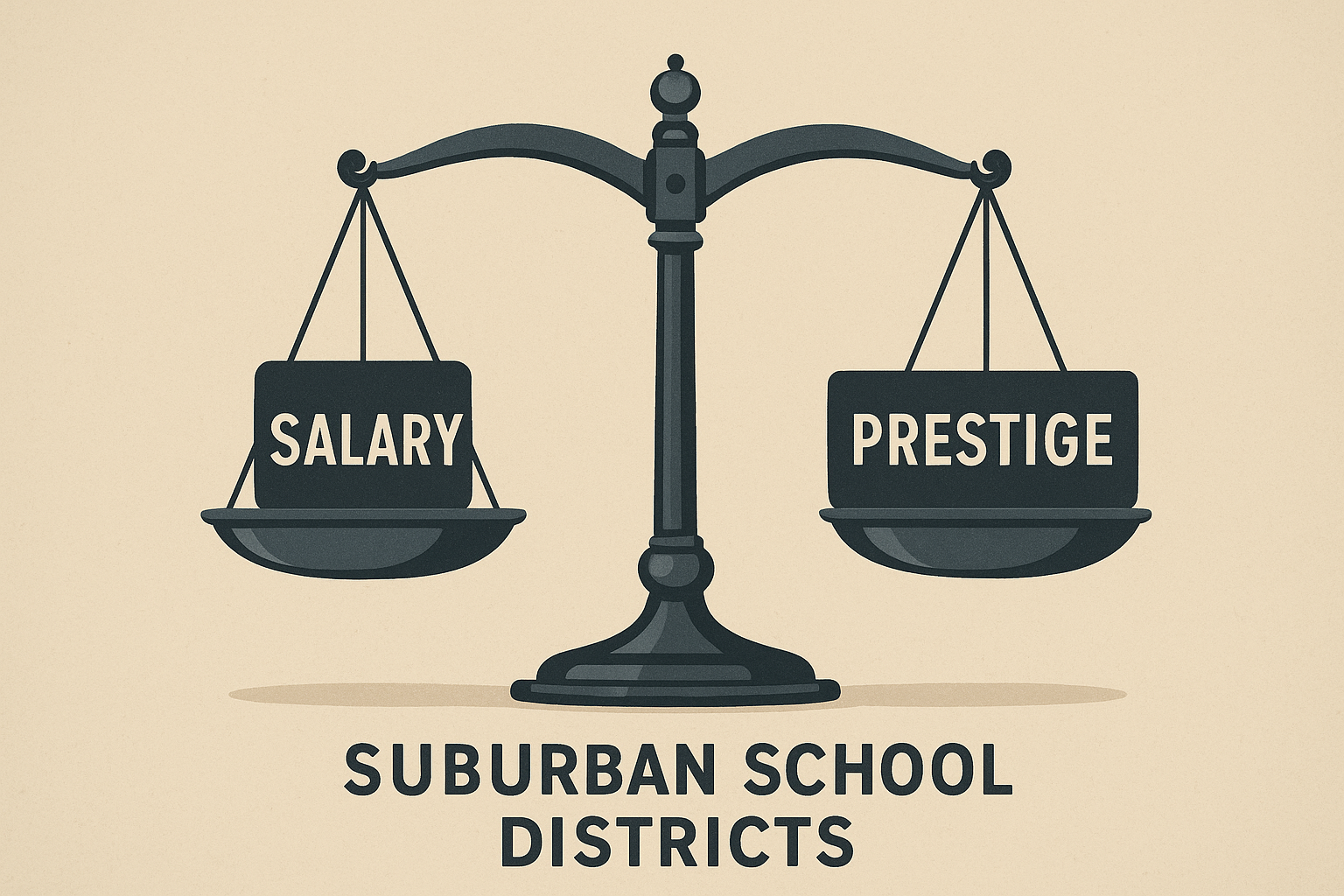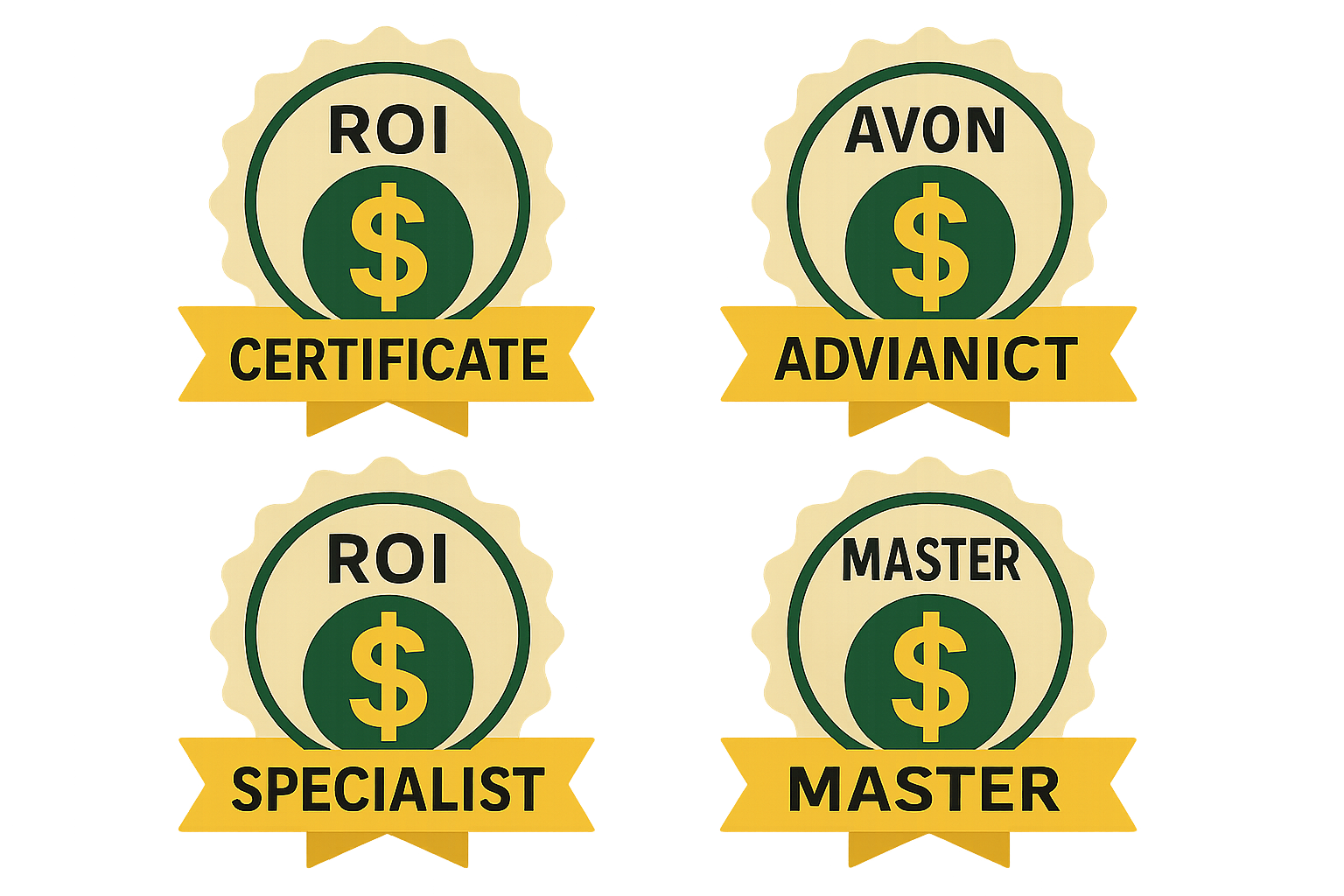Most school librarians are leaving thousands of dollars on the table because they don’t understand the hidden economics driving their compensation. With employment for librarians and library media specialists projected to grow 3 percent from 2023 to 2033, about as fast as the average for all occupations, understanding these compensation dynamics becomes even more crucial for maximizing your earning potential. This comprehensive guide reveals the geographic paradoxes, certification premiums, and negotiation strategies that can dramatically increase your earning potential in ways traditional salary guides never mention.
According to the Bureau of Labor Statistics, employment of librarians and library media specialists is projected to grow 3 percent from 2023 to 2033, with about 13,300 openings projected each year on average over the decade.
Understanding your earning potential as a school librarian requires more than just knowing base salaries – it demands strategic thinking about your entire career trajectory and the value of your educational credentials. Whether you’re protecting your existing qualifications or planning your next career move, having proper documentation of your achievements is essential for maximizing your librarian salary potential.
Table of Contents
- Why Your Location Might Be Costing You Big Money
- The Certification Game: Which Credentials Actually Pay Off
- Beyond the Library: Alternative Career Paths That Double Your Income
- The Art of Getting Paid What You’re Worth
- How ValidGrad Protects Your Career Investment
- Final Thoughts
TL;DR
- Rural districts now often outpay urban areas due to federal funding and retention challenges
- Suburban districts may offer lower base salaries but compensate with benefits worth $15,000-25,000 annually
- Technology certifications (Google, Microsoft) can boost salaries by 8-15% immediately
- ESL/ELL and special education certifications command 10-20% salary premiums in targeted districts
- Transitioning to instructional design roles offers 25-40% salary increases over traditional library positions
- Extended year contracts can increase annual compensation by 20-35%
- Professional development consulting can generate $500-2,000 per day in supplemental income
- Most librarians could increase compensation by 10-25% through better negotiation strategies
Why Your Location Might Be Costing You Big Money
The traditional assumption that urban districts pay more than rural ones has been completely flipped on its head. Federal funding initiatives and desperate retention efforts have created a compensation landscape where geography plays tricks on your paycheck in ways most librarians never realize. Understanding these patterns can help you make strategic career moves that maximize your earning potential.
I’ve watched countless librarians make career decisions based on outdated assumptions about where the money actually flows. The reality? Geographic salary patterns for librarians have shifted dramatically in the past five years, creating opportunities that most professionals completely miss.

Small Towns, Big Paychecks: The Rural Revolution
Rural school districts are now offering competitive and sometimes superior compensation packages compared to their urban counterparts. This shift stems from federal funding programs and the challenge of attracting qualified librarians to remote areas. Smart librarians are capitalizing on this trend by seeking positions in rural districts that offer both higher pay and lower living costs.
Federal Title I funding has become a game-changer for rural librarian positions. These schools receive substantial additional funding that directly impacts librarian salaries, sometimes boosting them by $5,000-15,000 annually. However, you’ll likely wear multiple hats – expect responsibilities beyond traditional library duties, including technology coordination and curriculum support.
The real magic happens when you can work in a higher-paying rural district while living in a nearby lower-cost area. I’ve seen librarians increase their purchasing power by 30-40% through this geographic arbitrage strategy. You’re essentially getting paid urban wages while enjoying rural cost of living.
According to the American Library Association, salaries are usually higher in academic libraries versus public libraries, and in large metropolitan areas versus rural areas, though this traditional pattern is shifting due to federal funding initiatives.
Making Federal Funding Work for You
Title I funding doesn’t just mean more money – it means more expectations. You’ll become the go-to person for educational technology, data analysis, and sometimes even administrative tasks. The upside? These expanded roles often lead to administrative pay scales and faster career advancement for the ambitious librarian.
Sarah, a librarian in rural Montana, leveraged Title I funding to secure a position paying $58,000 annually – $12,000 more than her previous urban district role. Her expanded responsibilities included coordinating the school’s 1:1 device program and managing student data systems, but the additional compensation and lower cost of living resulted in a 35% increase in her purchasing power.
The Geographic Sweet Spot Strategy
Finding your geographic sweet spot requires research, but the payoff is substantial. Look for rural districts within commuting distance of affordable housing markets. Some librarians I know drive 45 minutes each way but save $20,000+ annually on housing costs alone.
Have you considered how much your current location might be limiting your earning potential? The numbers might surprise you.
| Geographic Strategy | Salary Range | Cost of Living | Net Benefit |
|---|---|---|---|
| Urban District | $45,000-$55,000 | High | Baseline |
| Suburban District | $42,000-$52,000 | Medium-High | -5% to -10% |
| Rural District (Title I) | $50,000-$65,000 | Low | +15% to +30% |
| Rural District (Commute) | $50,000-$65,000 | Medium | +10% to +20% |
The Suburban Salary Trap
Highly desirable suburban districts often suppress salaries due to an oversupply of qualified candidates, creating a counterintuitive compensation environment. While these positions offer prestige and excellent working conditions, they may not provide the best financial returns for your career investment.
Prestigious suburban districts can afford to pay less because everyone wants to work there. It’s basic supply and demand – when you have 50 qualified applicants for one librarian position, districts don’t need to offer competitive salaries to attract talent.
For many librarians, understanding the true value of their educational credentials becomes crucial when evaluating these competitive positions. Having proper documentation of your qualifications, including replacement diplomas when needed, ensures you’re prepared for any opportunity that arises.

When Competition Kills Your Paycheck
I’ve watched brilliant librarians accept positions paying $8,000-12,000 below market rate just to work in “the good district.” Sometimes that trade-off makes sense for work-life balance, but you should make that choice with full awareness of its financial impact.
The Hidden Value of Benefits
Don’t let a lower base salary fool you. Premium health insurance, robust retirement contributions, and generous professional development budgets can add $15,000-25,000 in annual value. I always calculate total compensation, not just salary, when evaluating opportunities.
Recent salary transparency reports from Vermont school districts show this dynamic in action. In the “Champlain Valley School District FY24 employee salary database” Burlington Free Press analysis, total earnings often reflect more than just base salary, accounting for factors such as years of experience, level of education, overtime pay, coaching pay, certifications, and various stipends.
The Prestige Tax: What It Really Costs
The “prestige tax” is real, but it’s not always a bad investment. Working in a top-tier district for 2-3 years can open doors to higher-paying administrative roles or consulting opportunities that more than compensate for the initial salary sacrifice.
The Certification Game: Which Credentials Actually Pay Off
Not all certifications are created equal when it comes to salary impact. Specific credentials create measurable and compounding salary premiums, but the return on investment varies dramatically by region and district type. Understanding which certifications truly move the needle can help you invest your time and money wisely.
I’ve seen librarians waste thousands of dollars and countless hours pursuing certifications that sound impressive but add zero value to their paychecks. Meanwhile, others strategically target high-impact credentials that immediately boost their earning potential.
The key is understanding which certifications your specific district values and compensates accordingly. A Google certification might be worthless in a Microsoft-dominant district, while specialized population certifications can command premium salaries in the right demographic areas.

Tech Skills That Actually Pay the Bills
Schools increasingly view librarians as their educational technology backbone. Formal technology integration certifications command salary premiums of 8-15% above baseline – that’s real money that compounds over your entire career as a librarian.
Certification ROI Checklist:
- Research your district’s technology ecosystem (Google vs Microsoft vs Apple)
- Calculate current salary vs potential increase (8-15% for tech certs)
- Factor in certification costs and time investment
- Check if district offers reimbursement or stipends
- Verify certification renewal requirements
- Assess market demand in your geographic area
Google Certifications: Small Investment, Big Returns
Google Certified Educator credentials are relatively easy to obtain but pack a financial punch. Districts using Google Workspace often provide annual bonuses of $1,000-3,000 for these certifications. The time investment is minimal compared to the ongoing financial benefit for any librarian willing to pursue them.
Microsoft Credentials: The Enterprise Advantage
Microsoft-dominant districts treat these certifications seriously. I’ve seen automatic salary step increases and annual stipends that make the certification process worthwhile for any librarian. The key is matching your certifications to your district’s technology ecosystem.
Specialized Population Expertise
Specialized population certifications create niche expertise that districts desperately need. With changing demographics, these credentials can command 10-20% salary premiums in the right districts for qualified librarians.
According to Librarian Certification, school librarians are placed on salary scales based on qualifications and experience, with professional development activities and stellar contributions potentially qualifying librarians for honorary raises with additional benefits.
ESL/ELL Certification: Meeting Growing Demand
Growing immigrant populations make ESL/ELL integration certification incredibly valuable. High-need districts often offer 10-20% salary premiums for librarians who can effectively serve English Language Learners. The demand far exceeds the supply of qualified professionals in this specialized area.
Maria, a school librarian in Texas, added ESL certification to her credentials and immediately qualified for a $4,500 annual stipend in her district. The certification took six months to complete through online coursework, but the ROI was immediate and continues to compound annually.
Special Education Support: The Premium Niche
Special education resource certification is your ticket to administrative pay scales. Librarians trained in adaptive technologies and special education support become indispensable, often earning department head stipends or moving to administrative positions entirely.

Beyond the Library: Alternative Career Paths That Double Your Income
Traditional career progression models for school librarians are being disrupted by new opportunities that offer substantially higher compensation. Understanding these alternative pathways and how to position yourself for them can dramatically increase your earning potential beyond what’s possible in traditional library roles.
Your skills as a librarian translate beautifully to higher-paying fields, but most professionals never explore these options. I’ve watched librarians double their salaries by making strategic career pivots that leverage their existing expertise in new, more lucrative contexts.
The secret is recognizing that your core competencies – information literacy, research instruction, educational technology, and curriculum development – are incredibly valuable outside traditional library settings. Corporate environments, in particular, compensate these skills at rates that would shock most school-based librarians.
The Instructional Design Goldmine
Your skills in information literacy, research instruction, and educational technology make you a perfect candidate for instructional design roles. These positions often offer 25-40% salary increases over traditional library positions – we’re talking about potentially life-changing money for any experienced librarian.
| Career Path | Average Salary Range | Skills Leveraged | Transition Difficulty |
|---|---|---|---|
| School Librarian | $45,000-$65,000 | Information literacy, research | Current role |
| Instructional Designer | $60,000-$85,000 | Curriculum development, tech integration | Medium |
| Corporate Trainer | $65,000-$95,000 | Teaching, presentation skills | Medium-High |
| Curriculum Specialist | $55,000-$75,000 | Educational standards, assessment | Low-Medium |
| EdTech Consultant | $70,000-$120,000 | Technology integration, training | High |
Corporate Training: Where the Real Money Lives
Corporate training roles value exactly what you do as a librarian – teaching information literacy, research skills, and technology integration. The difference? Corporate budgets. I’ve seen librarians double their salaries by making this transition, fundamentally changing their understanding of the salary of a librarian in different sectors.

Curriculum Development: The Administrative Track
Curriculum specialist positions are perfect for librarians who understand both content and pedagogy. These roles typically offer administrative pay scales – 15-30% above teacher salaries – while keeping you in the education field you love. Many successful curriculum specialists started as school librarians.
The push for certified school librarians is gaining momentum nationwide. According to the “UFT school library media specialists” United Federation of Teachers, they continue to advocate for the creation of regulations to mandate full-time certified school librarians in every school library, which could create more administrative and specialist opportunities.
Building Your Side Hustle Empire
Your expertise doesn’t have to be confined to your school building. Smart librarians are creating multiple income streams that can add $10,000-50,000+ to their annual compensation, fundamentally changing what’s possible for librarian salaries.
Professional Development Consulting
Professional development consulting pays $500-2,000 per day for workshops and training sessions. Once you establish a reputation, districts will pay premium rates for your expertise. I know librarians who earn more from weekend workshops than their monthly salary.
Side Hustle Launch Checklist:
- Identify your unique expertise areas
- Create a professional portfolio/website
- Develop 3-5 signature workshop topics
- Set competitive daily rates ($500-2,000)
- Network with district professional development coordinators
- Obtain necessary business licenses/insurance
- Track expenses for tax purposes
Creating Educational Resources
Teachers Pay Teachers and similar platforms let you monetize your resource creation skills. Successful librarians generate $5,000-50,000+ annually in passive income from educational resources they’ve created. The key is identifying gaps in the market and creating high-quality solutions that other librarians need.
Jennifer, a middle school librarian from Ohio, created a series of digital citizenship lesson plans that now generate $18,000 annually in passive income through Teachers Pay Teachers. She spent her summer vacation developing the initial resources and now updates them quarterly while earning consistent monthly income.
Grant Writing: The Hidden Goldmine
Grant writing skills are incredibly valuable and well-compensated. Successful grants often earn stipends of $2,000-10,000 plus percentage bonuses. Some librarians specialize in this area and earn more from grant writing than their base salary, completely transforming their financial picture.

The Art of Getting Paid What You’re Worth
Most school librarians lack crucial negotiation knowledge that could increase their compensation by 10-25%. Understanding how to value and negotiate complete compensation packages, including benefits and alternative structures, can significantly impact lifetime earnings and career satisfaction.
I’ve watched too many talented librarians accept the first offer presented to them, missing opportunities to negotiate thousands of dollars in additional compensation. The truth is, most districts have more flexibility in their compensation packages than they initially reveal, but you need to know how to ask for what you want.
Successful salary negotiation requires understanding your total value proposition and presenting it in terms that resonate with district priorities. You’re not just asking for more money – you’re demonstrating how your enhanced compensation will benefit the entire school community.
Understanding Your True Value
Most librarians focus only on base salary during negotiations, missing opportunities to increase their total compensation by thousands of dollars annually. Understanding how to value and negotiate the complete package is crucial for maximizing your earnings and truly understanding the salary of a librarian in your market.

Retirement Contributions: The Compound Interest Advantage
Higher employer retirement contributions can be more valuable than salary increases due to tax advantages and compound growth. A 2% increase in employer contributions might seem small, but it can add hundreds of thousands to your lifetime wealth as a librarian.
Total Compensation Evaluation Template:
- Base Salary: $______
- Health Insurance Value: $______
- Retirement Contribution: $______
- Professional Development Budget: $______
- Extended Contract Premium: $______
- Certification Stipends: $______
- Total Annual Value: $______
Creative Compensation Strategies
Creative compensation arrangements can substantially increase your annual earnings without straining district budgets. Extended contracts, summer work opportunities, and professional development stipends all add real value to your compensation package as a librarian.
When negotiating for professional development opportunities, ensure you have proper documentation of all completed training and certifications. Having access to academic documents and certificates can strengthen your position during salary negotiations and career advancement discussions.
Extended Year Contracts: The Income Stability Play
Extended year contracts (11 or 12 months instead of 9) can increase your annual compensation by 20-35% while providing income stability. Many districts are open to these arrangements because they ensure continuous library program support throughout the year.
Professional Development: The Tax-Advantaged Bonus
Dedicated professional development budgets of $2,000-5,000 annually provide tax-advantaged compensation while enhancing your skills. Conference attendance, certification costs, and training materials all count as professional development – and they’re often easier for districts to approve than salary increases for librarians.

How ValidGrad Protects Your Career Investment
Your library science degree and teaching credentials represent years of hard work and significant financial investment. Protecting documentation of these achievements is crucial for salary negotiations, job transitions, and career advancement – especially when pursuing the higher-paying opportunities we’ve discussed for librarians.
ValidGrad understands that important documents can be lost, damaged, or misplaced during career transitions. Whether you’re moving between districts for better compensation, relocating to take advantage of geographic arbitrage opportunities, or transitioning into instructional design roles, having immediate access to replacement diplomas and transcripts ensures you never miss opportunities due to missing documentation.
For librarians navigating the complex compensation landscape we’ve outlined, readily available credential documentation becomes even more important when pursuing specialized certifications, applying for higher-paying positions, or making the transition to corporate training roles where quick credentialing verification is essential.
Your credentials are the foundation of your earning potential as a librarian. Whether you need to get a copy of your college degree for a new position or want to ensure your documentation is always accessible, ValidGrad provides the peace of mind that comes with knowing your career investments are protected.
ValidGrad’s service allows you to maintain professional readiness while focusing on what matters most – advancing your career and maximizing your earning potential in the evolving field of school librarianship. Don’t let missing paperwork derail your next career move or salary negotiation.

Final Thoughts
The school librarian profession is evolving rapidly, and so are the compensation opportunities available to those who understand the hidden economics driving the field. Geographic location, strategic certifications, alternative career paths, and negotiation skills all play crucial roles in determining your earning potential as a librarian.
As you implement these salary strategies, remember that your educational credentials are your most valuable assets. Whether you’re transitioning between roles or pursuing advanced opportunities, having reliable access to your documentation through services like diploma replacement ensures you’re always prepared for the next opportunity.
Don’t accept the traditional narrative that librarians are underpaid and undervalued. Armed with the insights we’ve covered, you have the tools to dramatically increase your compensation and build a financially rewarding career in library science. The key is taking action on these strategies rather than hoping your district will spontaneously recognize your worth.
Your expertise in information literacy, educational technology, and student support makes you incredibly valuable – it’s time your compensation reflected that reality. Whether you choose to optimize your current position or explore alternative career paths, the opportunities for financial growth in this field are substantial for librarians who know where to look.
The question isn’t whether better compensation exists for librarians – it’s whether you’re willing to pursue the strategies that unlock it. Your career deserves the same strategic thinking you bring to every other aspect of your professional life, and the potential rewards for salaries for librarians who take action are significant.
